Sam Underhill has always come across as the thinking man's back row.
Having spent two years studying economics at Cardiff University - when he started his career with the Ospreys before broadening it to a degree in politics and economics at the University of Bath when he moved to The Rec - you might wonder which high-flying career he would have pursued in the City of London rather than becoming one of the most fearsome tacklers in the game.
He may not have the presence of some of the bigger personalities within the England squad: his appointment to the team's new social committee was jokingly described as 'controversial' by new England captain Jamie George during this interview. But if the flanker speaks in a soft voice, it's usually worth listening to. Especially when it comes to the touchy subject of concussions.
For a player who has suffered quite a bit of brain damage during his career, you could understand why the 27-year-old would prefer to avoid the problem. By his own account, his name has almost become linked to concussion due to media coverage of his misfortunes and the increased attention he is attracting given the backdrop of former players' lawsuit against rugby authorities over brain injuries.
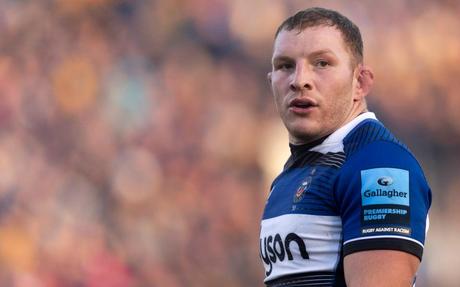
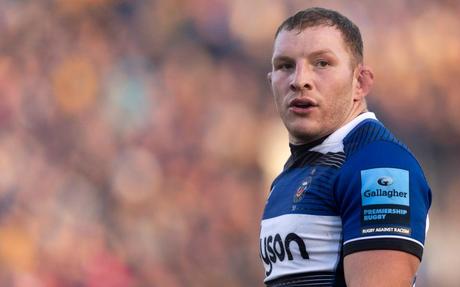
"I get a lot of people on social media giving their opinions," he says. "If I've had a concussion, they tell me to do this or that or it's not safe. Realistically, the only people who matter are myself, my family, and the medical professionals trained to care for me.
"But people have opinions about it, but I think it would be weirder not to talk about it or ignore it."
'More advantages than disadvantages'
Underhill has never been one to take the easy way out. It's been almost six years since he revealed he had adjusted his tackling technique after being sidelined for almost two months due to the concussion he suffered against Australia in November 2017, his second head trauma of the season.
And the player who formed a destructive back-row partnership with Tom Curry at the 2019 World Cup, with former England head coach Eddie Jones dubbing the pair 'the Kamikaze Kids', has struggled to stay fit with concussions over the last World Cup cycle. the last of which he suffered in March last year.
The story continues
For the record, Underhill says he has no opinion on the pending lawsuit because he "wasn't there when those guys were playing."
But what he is certain of is that in his opinion the benefits of rugby far outweigh the risks.
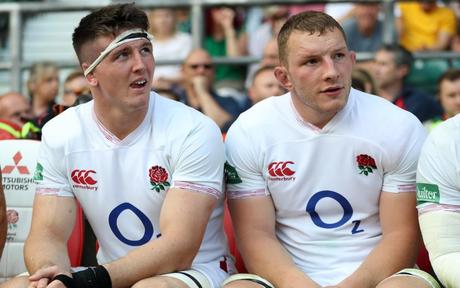
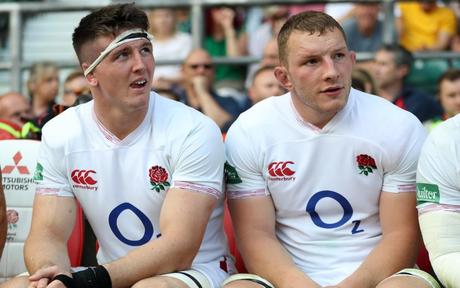
This week it was reported that a paper to be published by academics from the universities of Winchester, Nottingham Trent and Bournemouth will argue that the risk of serious injury in tough sports such as rugby is against child abuse laws.
Still, Underhill is willing to stand up and passionately support the benefits of the game, despite the injuries he has suffered.
"It's part of the game, isn't it?" he adds. "But at the same time the game offers so much. If you were to make a list of pros and cons, the pros could far outweigh the cons.
"I can only speak from my own experience, but I would say caution is the key now.
"I was never pressured to keep playing. I've had concussion and timeout. But it's like any injury. If you get a broken leg, you have to serve three months. Instead of worrying about players having a timeout, it should be seen as a positive. 'This weekend a player suffered a concussion. Okay, that's not great, but what are they doing? They won't play for the next four weeks. Good.'
"At the same time, the laws are constantly being revised to improve safety and in my opinion technology is a bit part of that and is being underestimated. Previously, I stuck my head in places where I wasn't allowed to, and that was a bit reckless. And that's on me, not the game or medical issues. If I put my head in front of the hip or knee of a 120kg player, sometimes someone comes out badly, it's not like it's a low threshold."
'Rugby is not for everyone'
Underhill believes rugby should embrace the topic of concussion and not shy away from it. He works with a sports psychologist and feels that the game is good for him.
"I feel good. I have always been well looked after and I would like to think that I have always taken care of myself and been honest about it. I have tried to do the right thing and be an example to other players like they still get a blow on the head."
Underhill said all players now wear gum shields during practices and games that monitor the force of impact. There is a threshold for 'immediate removal', but Underhill says no player has come close to that in training.
"The more data we get the better and the more people talk about it the better. It feels like too much bad PR for the game to ignore. We have to acknowledge it and say, 'Yes, it's a risk, but we're doing all this to mitigate it.'
"They also monitor the cumulative impact and use the data to identify trends. We also have a saliva test, which is an instant swab test. They can tell from the enzymes in your saliva whether you have had a concussion or not. It's good because all these things take it out of the hands of the players.
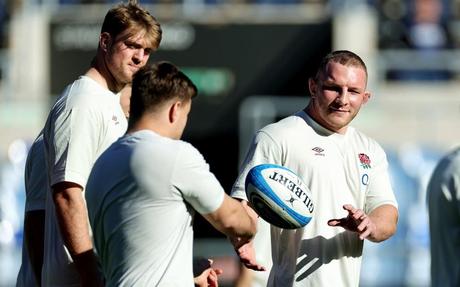
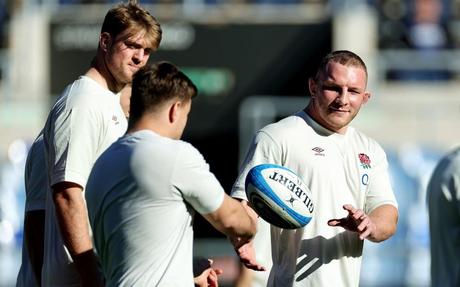
"I think the product is good. If there are any problems, it's the way the game is perceived.
"Rugby is incredibly rewarding. It keeps you physically active. Physically I couldn't think of a more versatile sport and collectively you work within a team. You get to work with people, you develop relationships with people and it's huge for people's trust.
"My message to parents is: if they want their children to be safe, don't let them do anything! Rugby isn't for everyone, some won't like it. I loved it, but I was also terrible when I started. When I was 11 years old, I had no coordination, but I really loved the environment. As a child it gave me so much more confidence. I don't know what I would be doing now if I hadn't played.
"And you don't have to be really good. You play at your natural level, second or third team or whatever. That's the best part of the game. Yes, there are other sports, but I just think rugby is such an inclusive and diverse sport."
